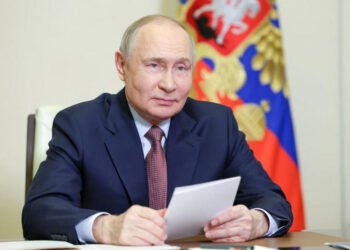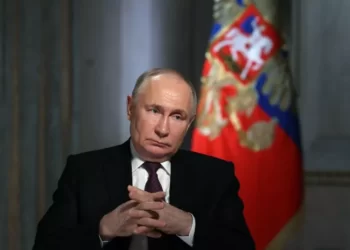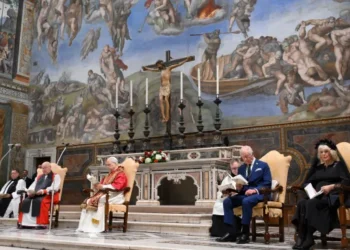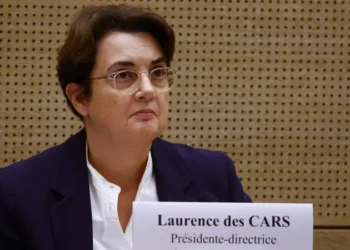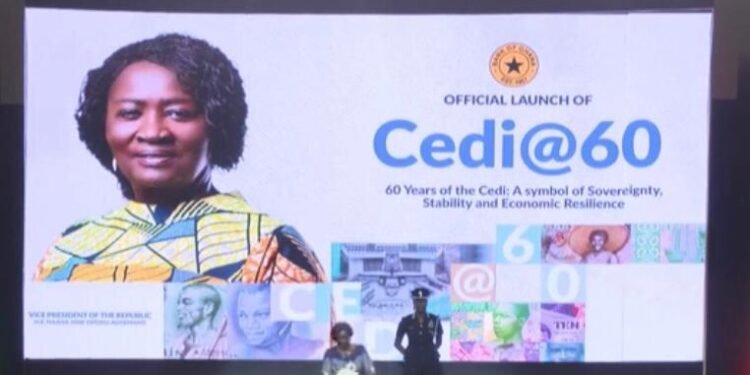The European Commission has proposed its 19th package of sanctions against Russia.
The European Commission President, Ursula von der Leyen, said in a statement that Russia “has shown the full extent of its contempt for diplomacy and international law” over the last month, as she criticised the largest-scale drone and missile attacks on Ukraine.
She specifically referenced the Russian strikes on Kyiv that hit the EU office in the capital, and Russian drone incursions into Poland and Romania. “These are not the actions of someone who wants peace,” she said.
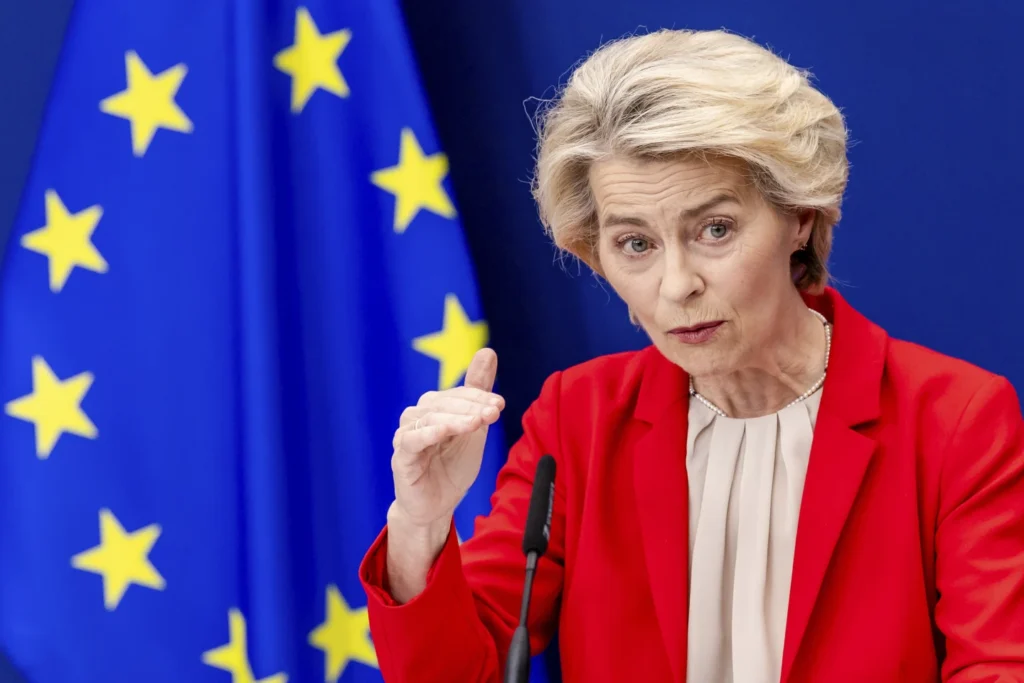
Von der Leyen noted that the 19th package of sanctions comes in response to this “escalation” from Russian President, Vladimir Putin, she explained, as she outlined the key elements of the proposal.
She said that the EU will “want to cut” Russia’s revenues from fossil fuels, banning imports of Russian LNG into European markets. 118 additional vessels from the Russian shadow fleet will get added to the sanction list, which totals 560 vessels.
She added that “major energy trading companies Rosneft and Gazpromneft will now be on a full transaction ban,” and “other companies will also come under asset freeze.”
The new package will also target “refiners, oil traders, petrochemical companies in third countries, including China”who are alleged to be “purchasing oil in breach of the sanctions.” She asserted that Russia’s oil revenues in Europe have gone down by 90% in three years. “We are now turning that page for good,” she added.
Additionally, the European Commission President disclosed that the package will look at closing “the financial loopholes,” stating that it will bring forward “a transaction ban on additional banks in Russia and on banks in third countries.”
“We are stepping up our crackdown on circumvention. As evasion tactics grow more sophisticated, our sanctions will adapt to stay ahead. Therefore, for the first time, our restrictive measures will hit crypto platforms, and prohibit transactions in crypto currencies.
“We are listing foreign banks connected to Russian alternative payment service systems. And we are restricting transactions with entities in special economic zones.”
Ursula von der Leyen
The package will also“add new direct export restrictions for items and technologies used on the battlefield,”with 45 companies in Russia and third countries to be affected.
Von der Leyen also said that while Russian frozen assets “will not be touched,”Ukrainewill get reparations loans, to be repaid by future Russian reparations.“We will come forward with a proposal soon,” she said.
“Faced with Russia’s escalation, Europe stepped up to the challenge. We will continue to use all the tools at our disposal to bring this brutal war to an end. I now call on the Member States to quickly endorse these new sanctions.
We want Russia to leave the battlefield and come to the negotiating table. This is the way to give peace a real chance.”
Ursula von der Leyen
Kallas Asserts Sanctions’ Impact
In her statement, EU’s Foreign Policy Chief, Kaja Kallas stressed that the bloc’s “sanctions bite” and “have a visible impact on Russia’s public finance and economic growth.” She added, “Any source of income for the Kremlin to continue its aggression is a target.”
She iterated that the EU will propose a “full prohibition of Russian LNG imports by January 2027.”
She also said the package will include new measures against “individuals involved in the abduction and indoctrination of Ukrainian children.”
“Europe wants peace for Ukraine but despite weeks of diplomatic efforts, Russia only intensifies its aggression and is now breaching the European Union’s own borders. Depriving Moscow of the means to wage war is essential to end this war and protect the security of our continent…
“Our message is clear: We will intensify pressure on Russia with increasingly hard-hitting sanctions, coupled with military support for Ukraine, until Russia accepts a genuine, just and lasting peace.”
Kaja Kallas
The sanctions proposed by the commission will still need to be discuss and approved by the member states.
Usually, this requires unanimity among all member states, throwing a spotlight on Hungary and Slovakia’s reactions in particular, as they have a history of blocking or delaying proposed measures.
READ ALSO: GoldBod CEO Credits Mahama’s Vision for $6 Billion Surge in Gold Sales





